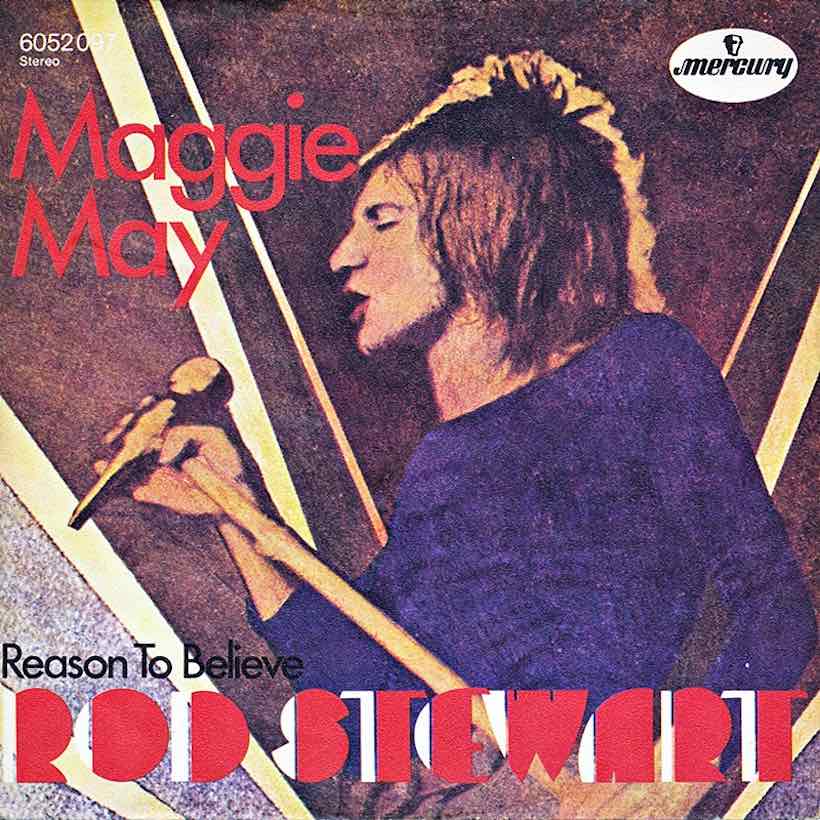
The gap between the first break for Rod Stewart, when Long John Baldry heard him playing harmonica on Twickenham railway station and the singer’s first British chart-topper, was just three months shy of eight years. Rod’s rocky road to No.1 was completed, when the chart for October 9, 1971 showed “Maggie May” climbing to the top. Not bad for what was originally a B-side.

Click to load video
Stewart’s long apprenticeship included his days with Baldry in the Hoochie Coochie Men and then Steampacket, Shotgun Express and then as lead vocalist with the Jeff Beck Group. Then he became frontman with the retooled Faces, formed after Steve Marriott’s departure from the Small Faces, and signed a solo deal with Mercury at the same time. Album acclaim followed for An Old Raincoat Won’t Ever Let You Down and Gasoline Alley, but still that singles success eluded Rod.
A flip side turns over
In August 1971, Mercury released Stewart’s new single, with his version of Tim Hardin’s “Reason To Believe” as the official A-side. That was the song that was listed when the single made its Top 40 debut, at No.31, and as it climbed to No.19.

Click to load video
But public demand was soon transferring to the flip side, written by Rod with Martin Quittenton, as they worked on Stewart’s third album, Every Picture Tells A Story. Stewart developed a melody to his collaborator’s initial chords, and Rod’s lyrics were based on his real life liaison as a young man with an older woman. She was named on disc as Maggie, but never in full during the song as Maggie May.
The studio line-up for the track was a fascinating one, including the partial Faces gathering of Ian McLagan on organ and Ronnie Wood on both electric guitar and bass, as well as 12-string. Micky Waller was on drums and Quittenton on acoustic guitar, while the other crucial feature of the song’s success, the mandolin, was played by Ray Jackson, joint lead singer with another band emerging fast at the time, Lindisfarne.
Stewart first appeared on Top Of The Pops performing “Maggie May” on August 19, on an edition presented by BBC Radio 1 DJ Tony Blackburn. The following month, dance troupe Pan’s People danced to it. By the time the single climbed to No.11, “Maggie May” was listed as the top side, and it never looked back.
A ‘Top Of The Pops’ classic
It was the famous performance on the September 30 show, as the song stood at No.2, behind the Tams’ “Hey Girl Don’t Bother Me,” that helped propel “Maggie May” to the top. Jackson, sadly, would miss out on a piece of pop history as he was unavailable for the Top Of The Pops recording, so DJ John Peel stepped in to mime the part. Another Face, Ronnie Lane, also joined the antics.
Listen to the best of Rod Stewart on Apple Music and Spotify.
On the next chart, “Maggie May” made it to No.1, with Every Picture Tells A Story already in its second week atop the album survey. “Maggie” spent five weeks at the summit, and the glory years of Rod Stewart had begun.




